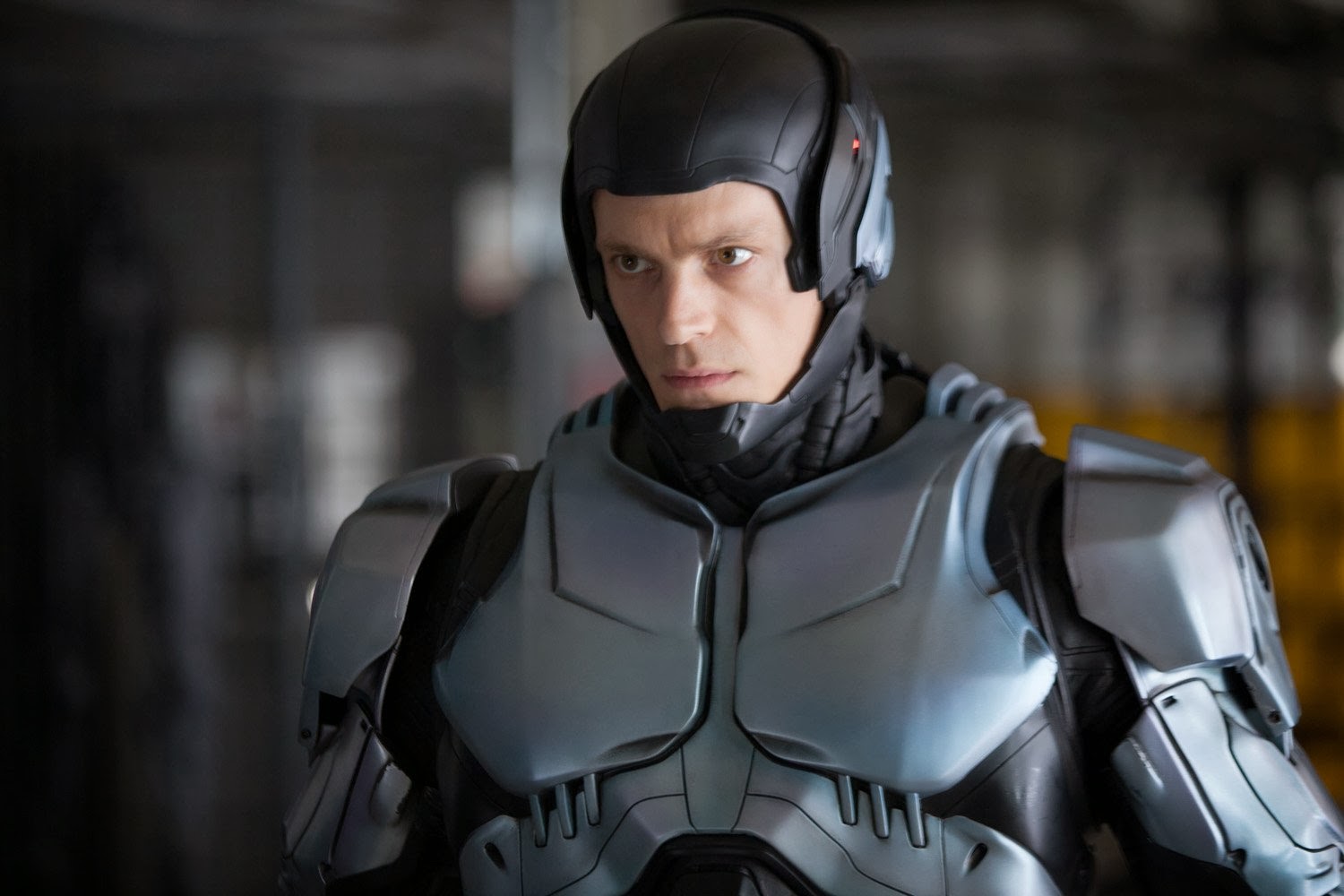Detroit’s hero is back. Robocop has been rebooted and modernized. His tale is not as fresh as it was in 1987, but the story retains the core issues of the original. Much like the hero Alex Murphy, 2014 Robocop isn’t perfect but it gets the job done.
Flash forward to 2028. The world is successfully patrolled by unmanned drones funded by the Omnicorp Corporation and their CEO Raymond Sellars (Michael Keaton). However, the United States is too distrusting of robots. As a result, the corporation marketing team (Jay Baruchel and Jennifer Ehle) and their conservative news anchor Pat Novak (Samuel L. Jackson) choose to put a robot in a suit to capture the US market. They select Alex Murphy (Joel Kinnaman), a good cop from Detroit fighting corrupt police. Nursed back to “life” by Dr. Dennett Norton (Gary Oldman), Murphy becomes a hero to the masses. Soon however, he starts overriding his protocols as his personality seeps into the robot.
Similar to the 1987 Robocop, 2014 Robocop touches on identity and corporate branding. The identity part matches the 1987 version, with some great discussions on control during the testing phase of Robocop. Corporate branding is also very interesting, especially incorporating the media into the story. The big ideas make Robocop really fun to watch, and provide the most compelling material in the story. The violence has been dulled though, lessening the impact of the coldness of the robots. Instead, the movie smartly sets up some scary boo! explosions and takes the camera away at the last second, leaving the carnage to the viewer imagination. The actions sequences aren’t great, but they are never boring, getting the point across.
If only the personal revenge story were more interesting. We get a solid 3 minutes of time with Alex and his family before he is “killed.” We get a bit more time with Alex’s partner Jack Lewis (Michael K. Williams), but for the most part, these people in Alex’s life aren’t given much of a personality. In addition, the big idea and media part of the story have more compelling discussions and deserve at least equal screen time. As a result, the ending feels abrupt and rushed, with not enough fleshing out of Alex’s connections to deserve the big conflict at the end. If anything, Robocop could have used another twenty minutes or so to give more context around Alex’s home life and personal morality to give the ending more emotional punch.
Joel Kinnaman, probably by design, is very rigid and cold as our new Robocop. Peter Weller, a really good actor, played the original Robocop as a more conflicted man: you could see the machinations of his mind fighting internally. Kinnaman’s limited range is hidden well by the directors, with his best moment coming when he sees what is left of his body. He doesn’t really add or detract to the movie. Surrounding Kinnaman are very good character actors that elevate the material they are working with. Jay Baruchel, Jennifer Ehle, and (especially) Michael Keaton get to do some cool corporate machination, with Keaton playing his eccentricity off well. Michael K. Williams and Abbie Cornish are good with limited screen time. Jackie Earl Haley plays a surprisingly intense, smart, and blunt soldier.Sam Jackson plays off his personality well as a Fox News type anchor. The biggest head scratcher is Gary Oldman, who gets the most compelling role and does some interesting stuff as the doctor, but feels very shortchanged after the movie is over.
Robocop is neither bad nor good. It is a solid remake that embraces its predecessor while connecting the character to a new audience. What is most compelling is watching Sam Jackson as a right-wing conservative; I would watch an entire movie about his rise to power.

